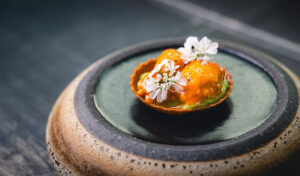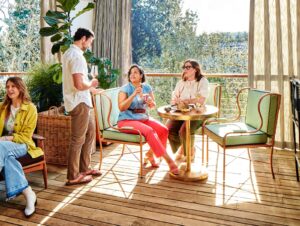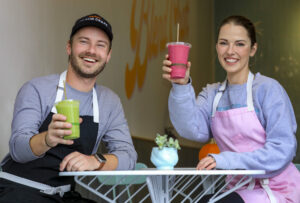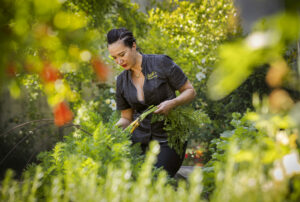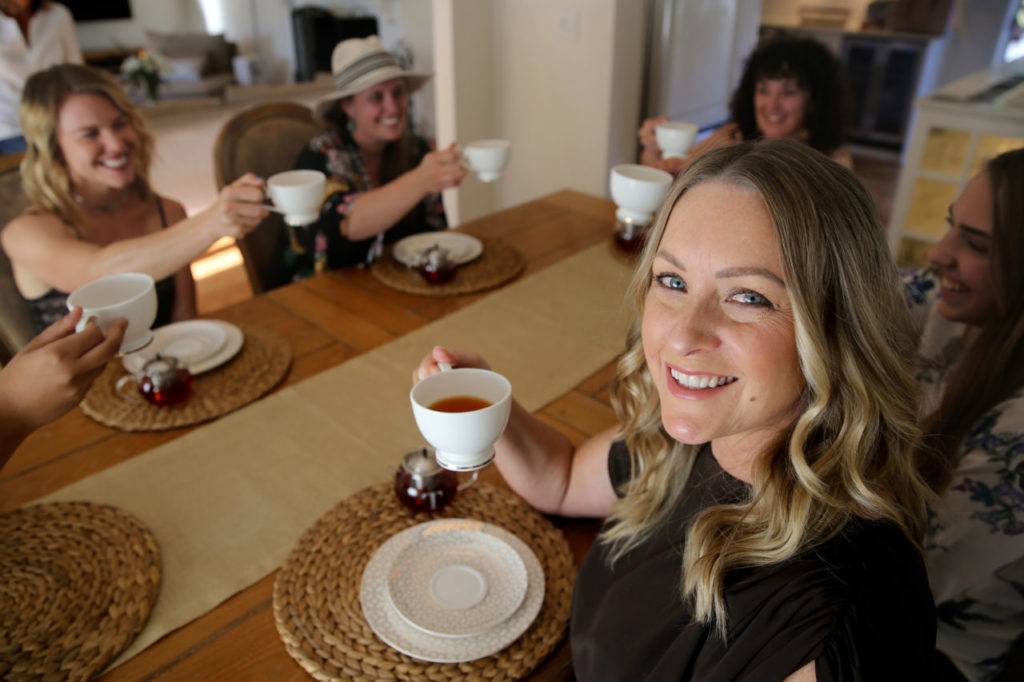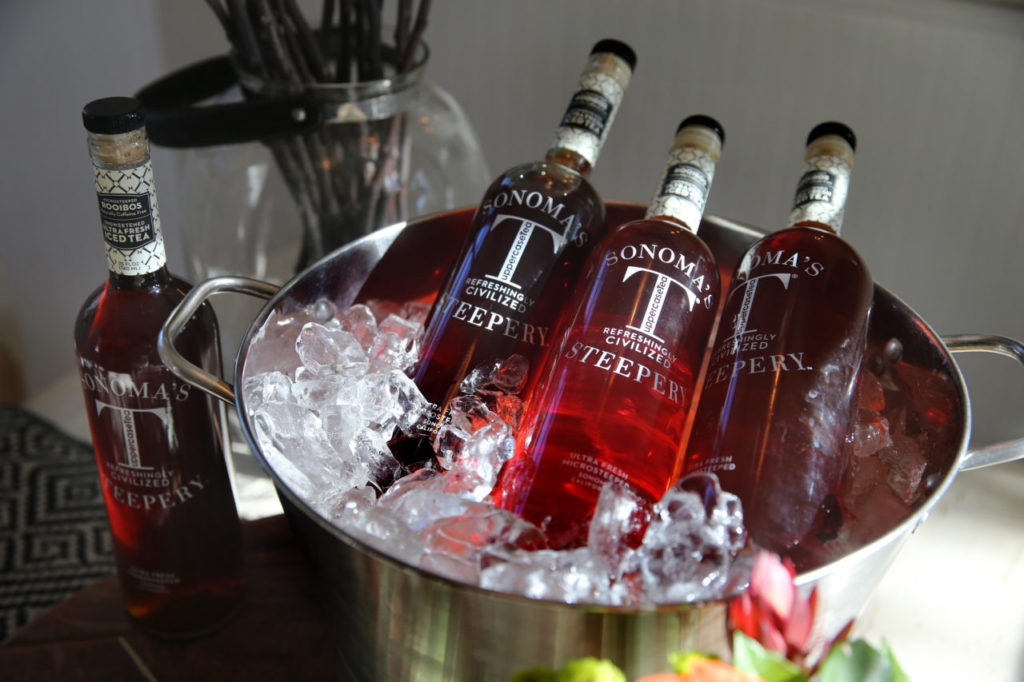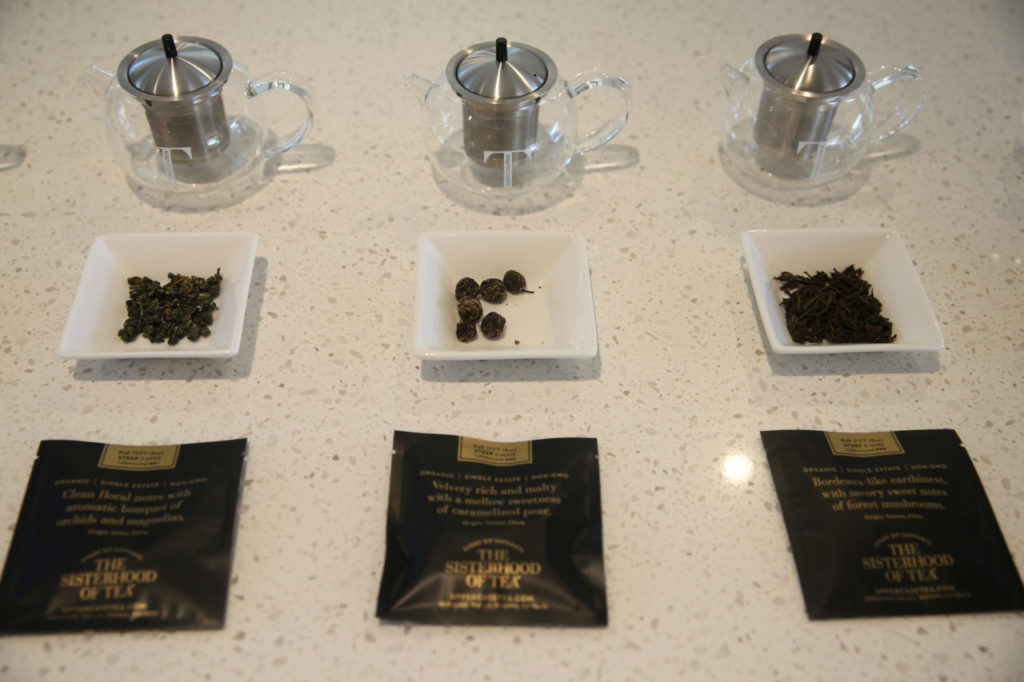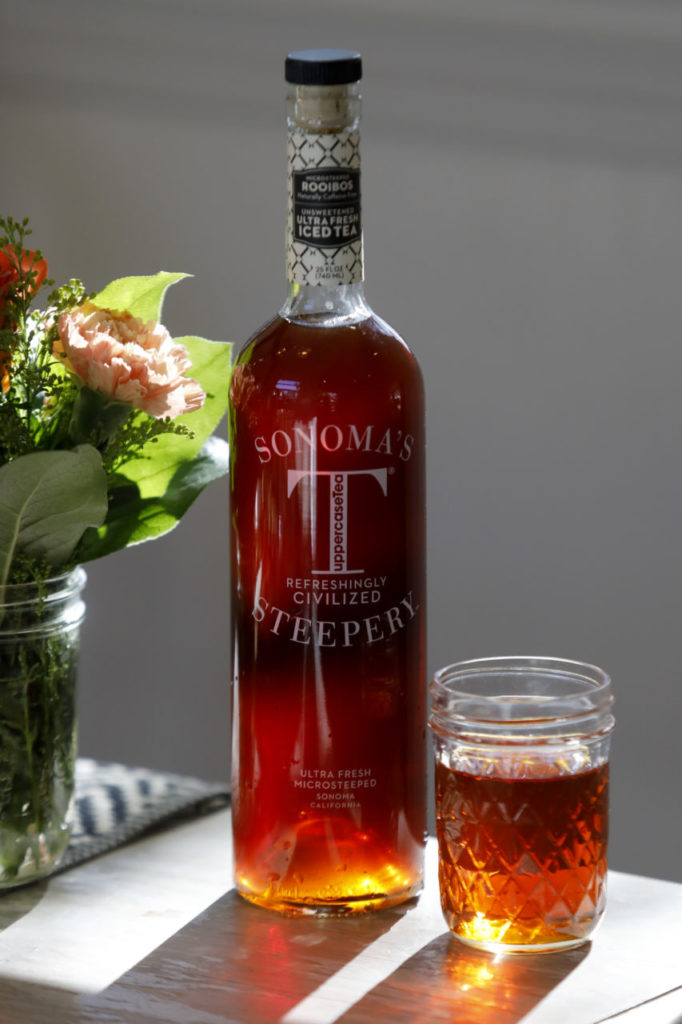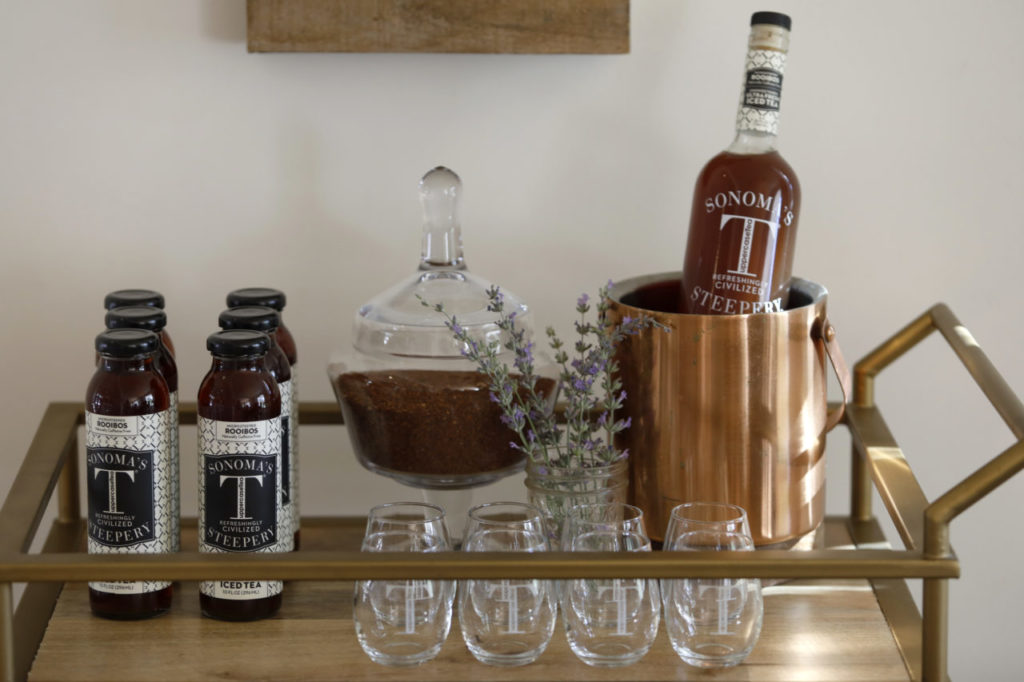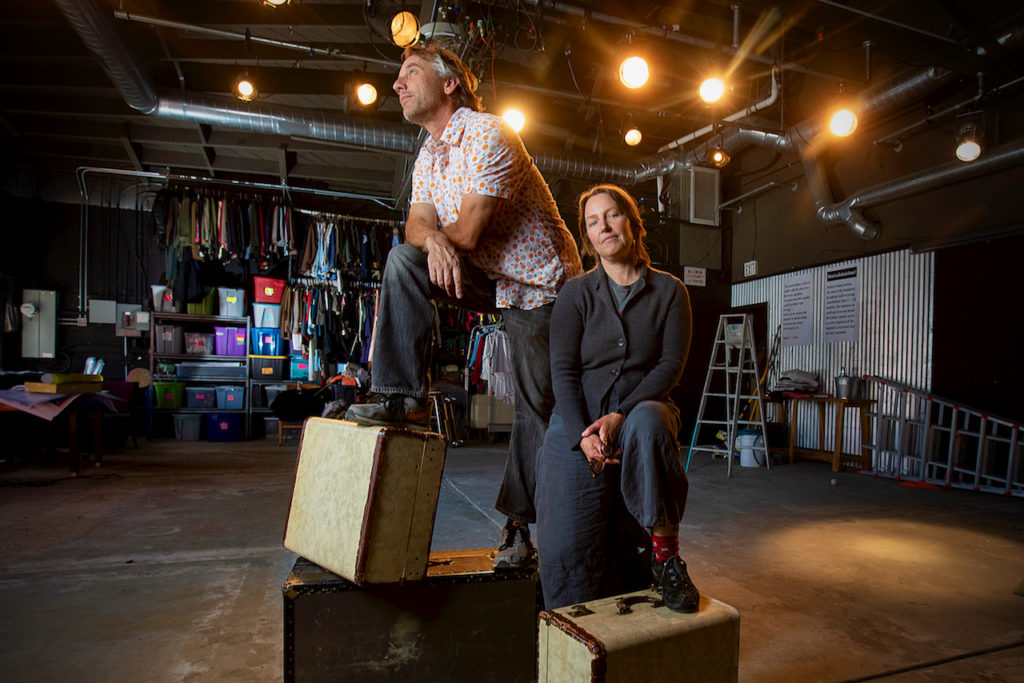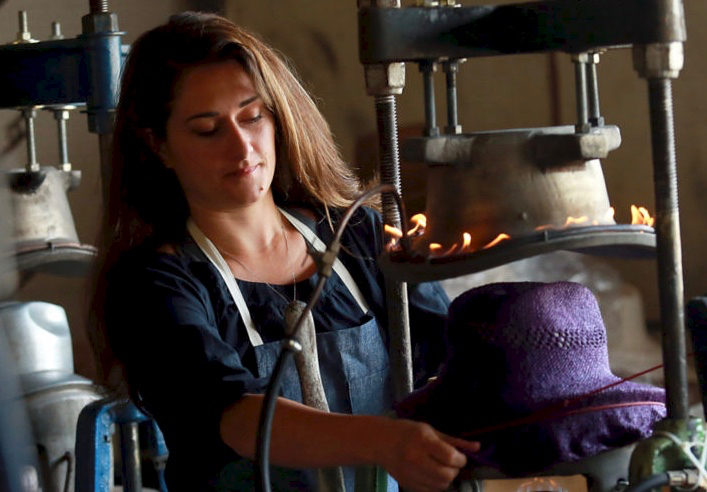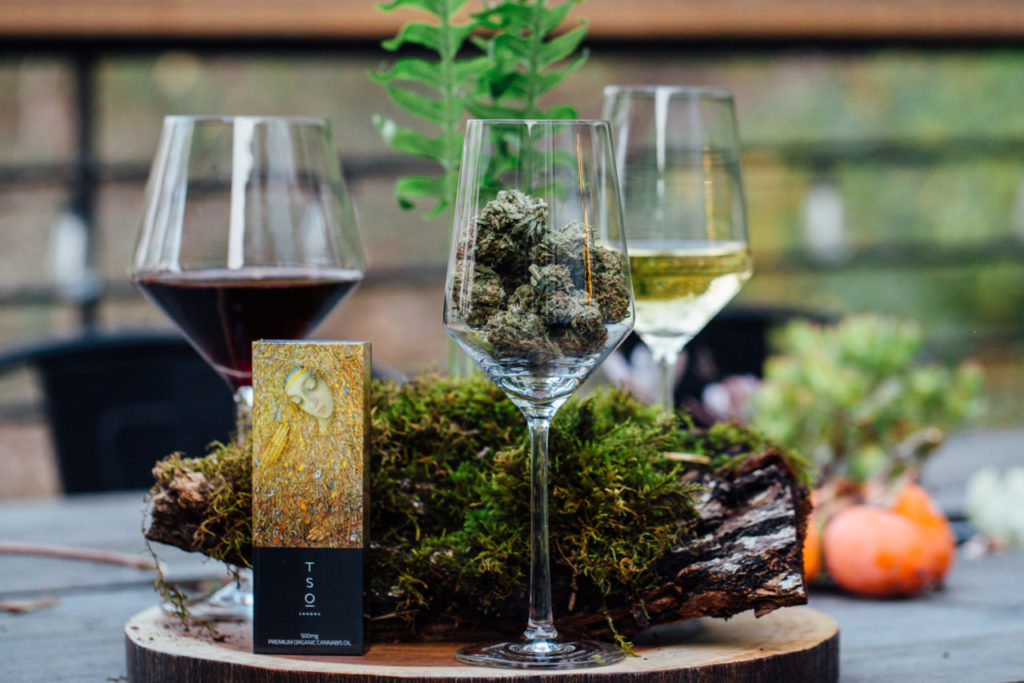“Never doubt that a small group of thoughtful, committed citizens can change the world. Indeed, it’s the only thing that ever has.” — Margaret Mead
It is a sultry July Sunday in Waterloo, New York. The year is 1848. Church service has ended and five women gather for tea. Over the course of the day, they air grievances about the subservient role assigned to women and the injustices they endure. Their conversation moves them to organize a public convention in the nearby village of Seneca Falls. The topic of the meeting: “the social, civil, and religious condition and rights of woman.”
169 years later, on January 21, 2017, five million people take to the streets during the Women’s March. In cities across the United States and around the world, diverse voices call for a society that is just and good for the many, not only for the few.
On that day, one and a half years ago, Alison Kilmer was in Sacramento. The founder of Sonoma-based company Uppercase Tea was supporting the cause in a way she found particularly fitting: she was serving tea to the people who were protesting.
“Not many people know that the women’s movement began with a tea party,” says Kilmer.
The tea entrepreneur is seated by a table at Acre Coffee in Santa Rosa. It seems an unlikely place to be having a conversation about tea. But then, Kilmer’s company doesn’t have an office or retail space to meet in. She chooses instead to sell her tea products online and direct a part of the profit toward the company’s social endeavor “The Sisterhood of Tea,” created to “champion and give back to non-profits supporting women and girls.”
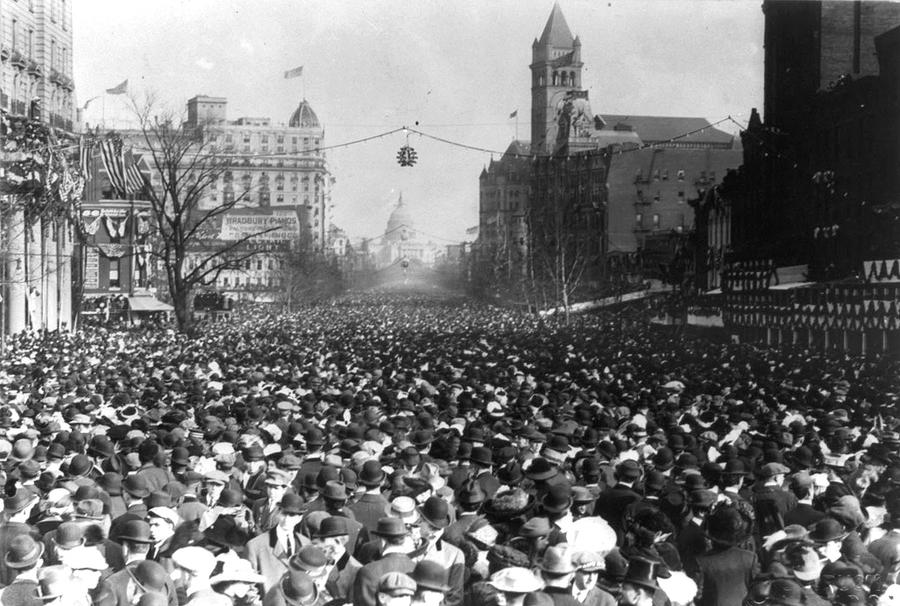

Kilmer says her idea for an online teashop was born in a “light bulb moment”— her path forward lit by a random confluence of life experiences.
After moving to Sonoma from Sausalito five years ago, Kilmer had become estranged from her two sisters. Out of her sisterly void came a “yearning for sisterhood,” Kilmer says. “I met some incredible women who invited me into their circles and I experienced a newfound appreciation for the power of women and female friendships.”
It was at this time also that Kilmer began discovering the comforts and benefits of tea. But unimpressed with many of the teas available—some artificially flavored, some “packed with sugar”—she set about seeking to elevate the tea drinking experience to that of the fine wine and cuisine that surrounded her.
Kilmer had previously worked in the marketing industry for 20 years, running her own branding agency since 2002 and working exclusively with clients “that did no harm to people, animals or the planet.” When the idea for Uppercase Tea/The Sisterhood of Tea came to her, she went about formulating plans for a socially conscious brand of her own.
“Life’s timing, all of these things coming together, suddenly gave me the idea—I need to start a tea company, and that tea company needs to serve our community and the women who have lifted me up through these years,” she says.
Kilmer began educating herself about tea varieties and processes—and about the role tea parties played in the early days of the women’s movement.
“At a time when women were not allowed to meet in public without men, they met over tea in their homes,” Kilmer elaborates. “What started as a discussion over tea between a handful of women grew to a gathering of about 300 people at the first women’s rights convention in Seneca Falls.”
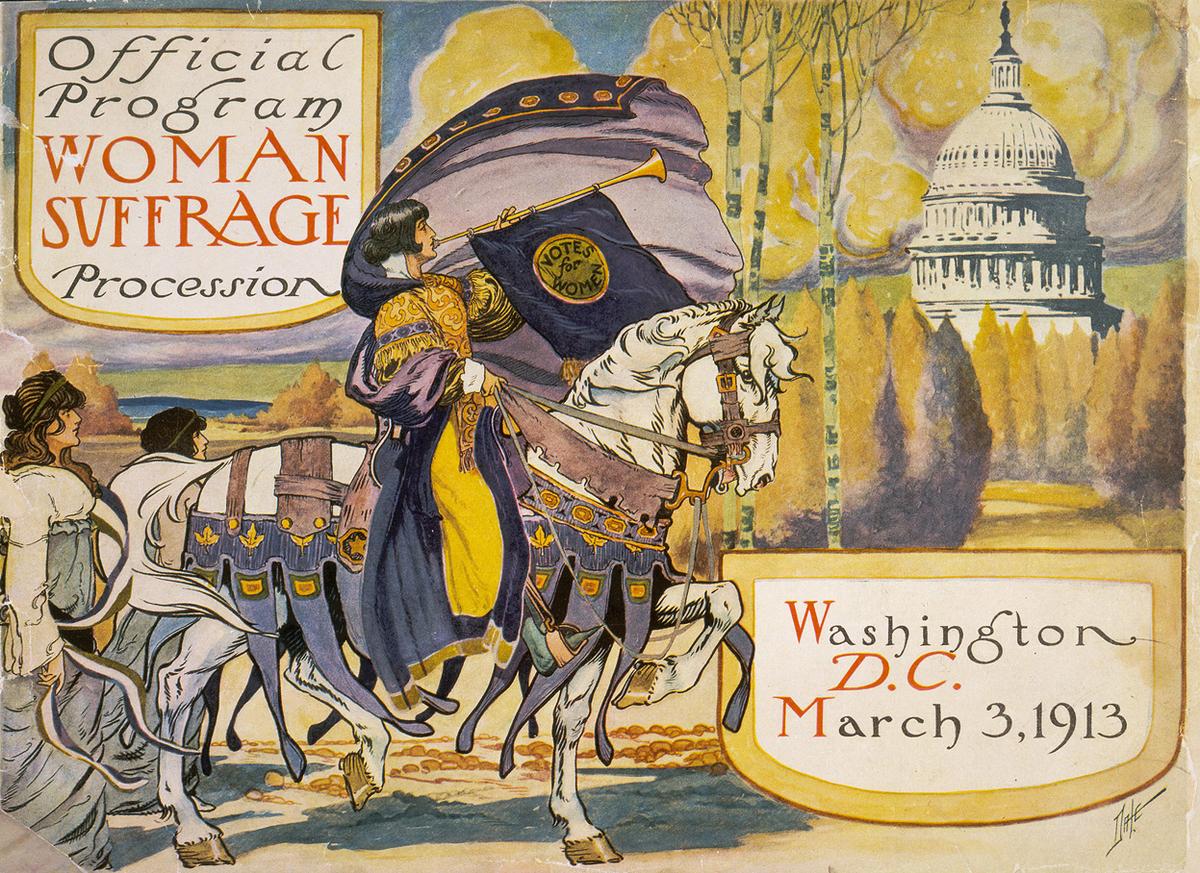
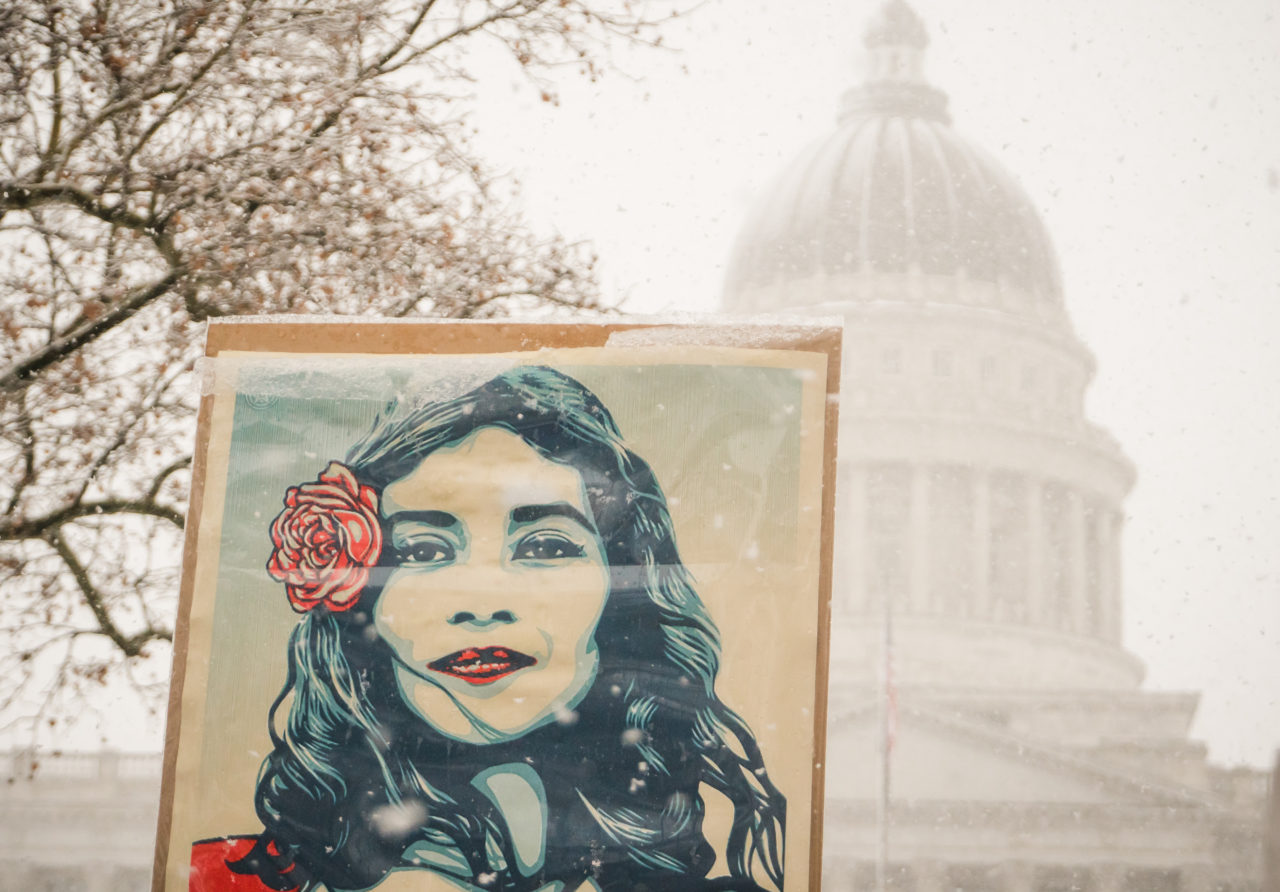
As women once again started to mobilize in the United States in the fall of 2016, Kilmer had already channeled the “fierce female spirit” of the suffragist’s tea-fueled movement into a mission for her company.
“I started setting up this company before the election and the MeToo movement. It grew out of my personal enlightenment about the power of sisterhood which, admittedly, came to me relatively late in life,” says Kilmer. “Now I could see women taking back power and utilizing their feminine gifts to help each other. It was inspiring.”
Today, Kilmer’s company directs fifteen percent of online proceeds to grassroots women’s organizations; and it employs and tutors two young women in partnership with local nonprofit Teen Services Sonoma.
Once a week, Kilmer meets Brissa Gonzalez and Olivia Thorgeson at the teen center in Sonoma where the three women measure and package Uppercase Tea’s single-estate loose-leaf organic teas—white, green, black, Oolong, Pu’erh and Rooibos.
“We talk about a lot of different things with Alison,” says Thorgeson, “about life in general, about school, about political issues, about how the internet has changed the way young people interact.”
Kilmer comments, “They talk to me about some pretty heavy things; things that women my generation didn’t really have to worry about…this gives me an opportunity to understand what young women are going through; what kind of challenges they are faced with.”
Together with Francesca Fifis, Program and Volunteer Director at Teen Services Sonoma, Kilmer has helped organize a girls group that meets once a week. “We had an abundance of boys attending our after-school programs,” Fifis laughs as she explains, “We wanted to tone down the testosterone level…Alison advised us on how to attract more girls, make them feel safe and allow them to express themselves.”
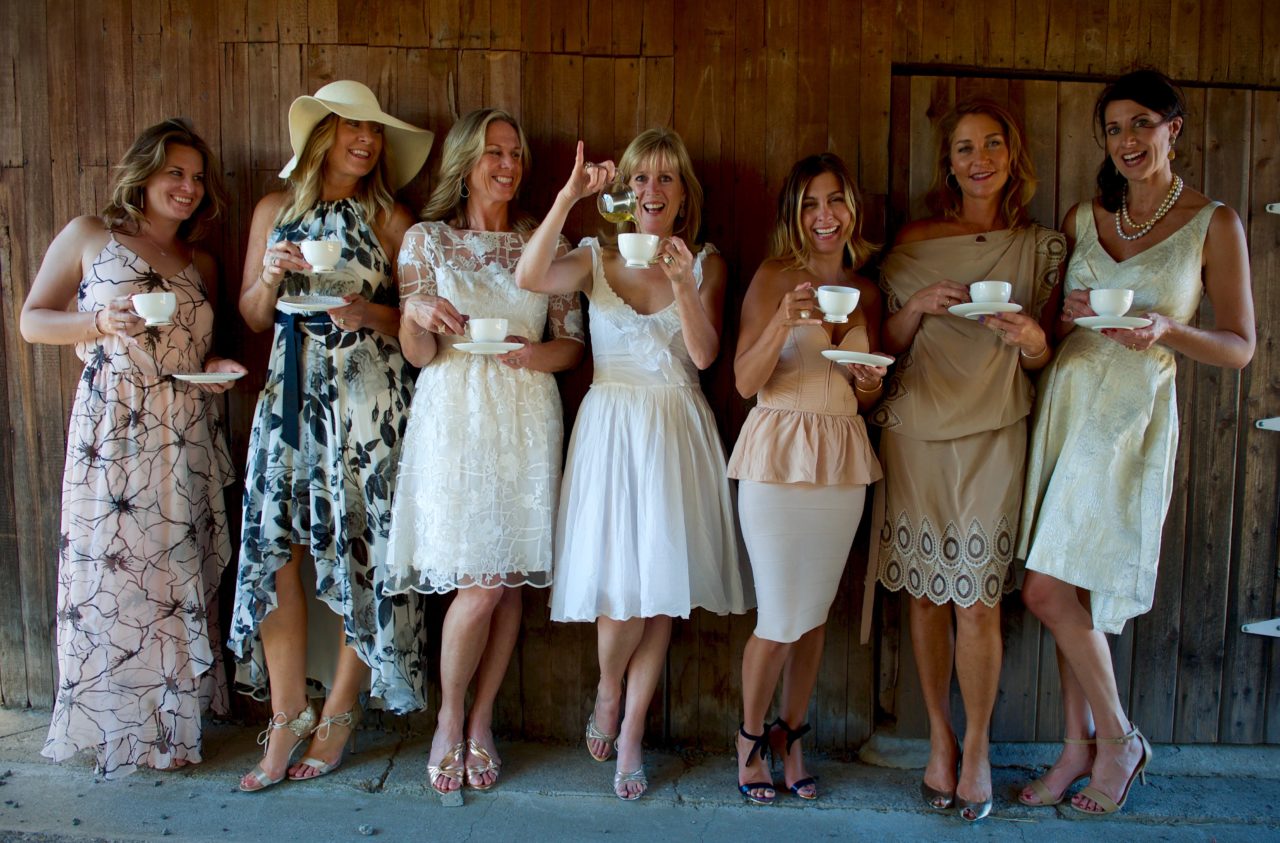
Kilmer’s teas are now helping to encourage conversations at other local organizations: at Sonoma Valley’s Woman’s Club and at the first gathering of Shenoma—a “community of women for women,” founded by Joelle Smith, which takes inspiration from the Assembly, a new women’s only clubhouse in San Francisco’s Mission District.
At the first Shenoma get-together in June of this year, women ranging in age from 16 to 50 attended. Like that long-ago day in Waterloo, New York, the day was sultry and hot. Kilmer served iced tea and gave a speech. Between the talk and the tea, she “saved the day,” says Smith, who has high hopes that these gatherings will help to inspire women to speak up for themselves—at home, in the workplace, and in politics.
For her part, Kilmer continues to believe that the way in which tea is consumed becomes yet another means to empower women. Her modern take on the traditional tea ceremony — the “me-ceremony”— blends English refinement and Eastern Zen with modern convenience to bring a “refreshingly civilized” timeout to today’s busy women.
Her “self-care tea kit,” sold online, includes a “me-pack,” a “me-pot” and a “me-cup” made from seashells. Together, these three take the guesswork out of tea preparation by providing just the right amount of tea, a high-quality pot for brewing and a fine cup for sipping. There’s even a temperature-controlled kettle and an app for steeping time to further perfect the tea-making process.
Kilmer hopes that the “me-ceremony” can help in a small way to encourage women to take some time for relaxing, recharging and thoughtful moments.
Those thoughtful moments can be shared with other tea-drinking women in The Sisterhood of Tea’s closed Facebook group. With some 600 members, the group is a forum to talk about “women’s issues, news, events, and networking in an effort to spark civilized debate and positive change for women of all ages and walks of life.”
And, buoyed by The Sisterhood of Tea slogan — “Teacups aloft ladies, let’s make better tea and let’s make history”— it just may be possible that these tea-fueled discussions will lead to changes comparable to those which began on a sultry July day in 1848 when a few women lingered after church to meet for tea and conversation.
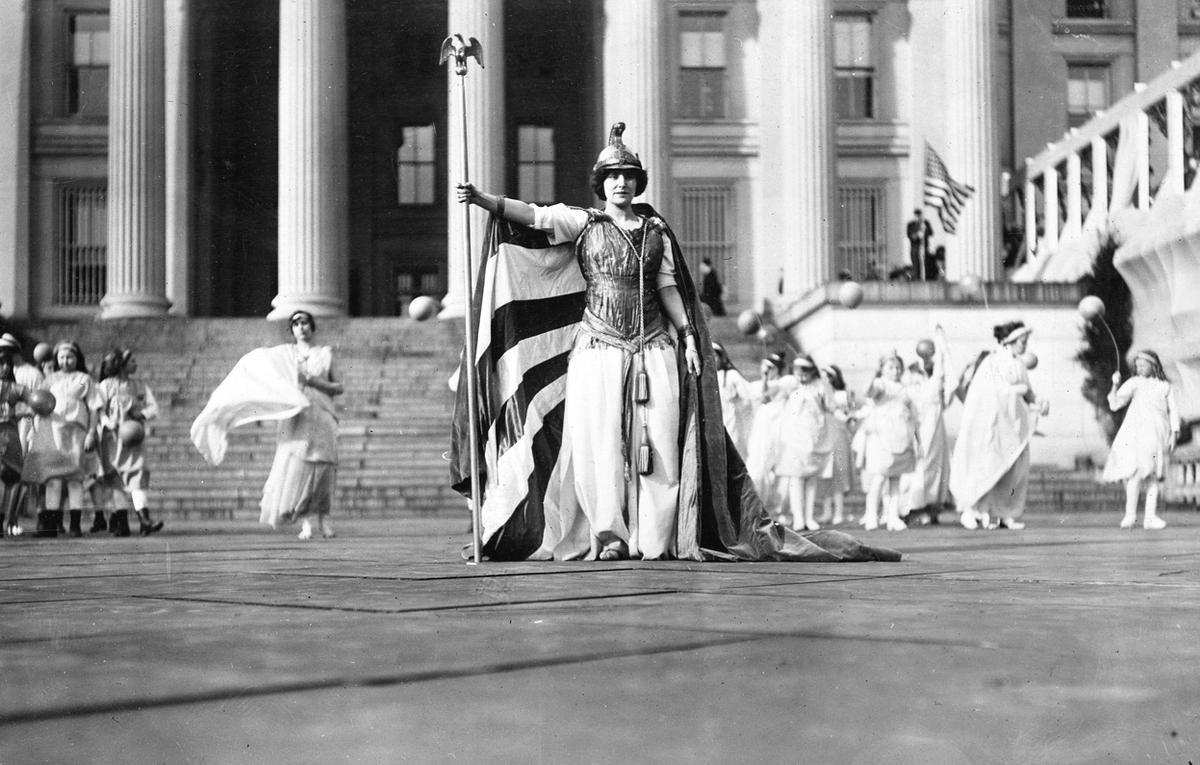
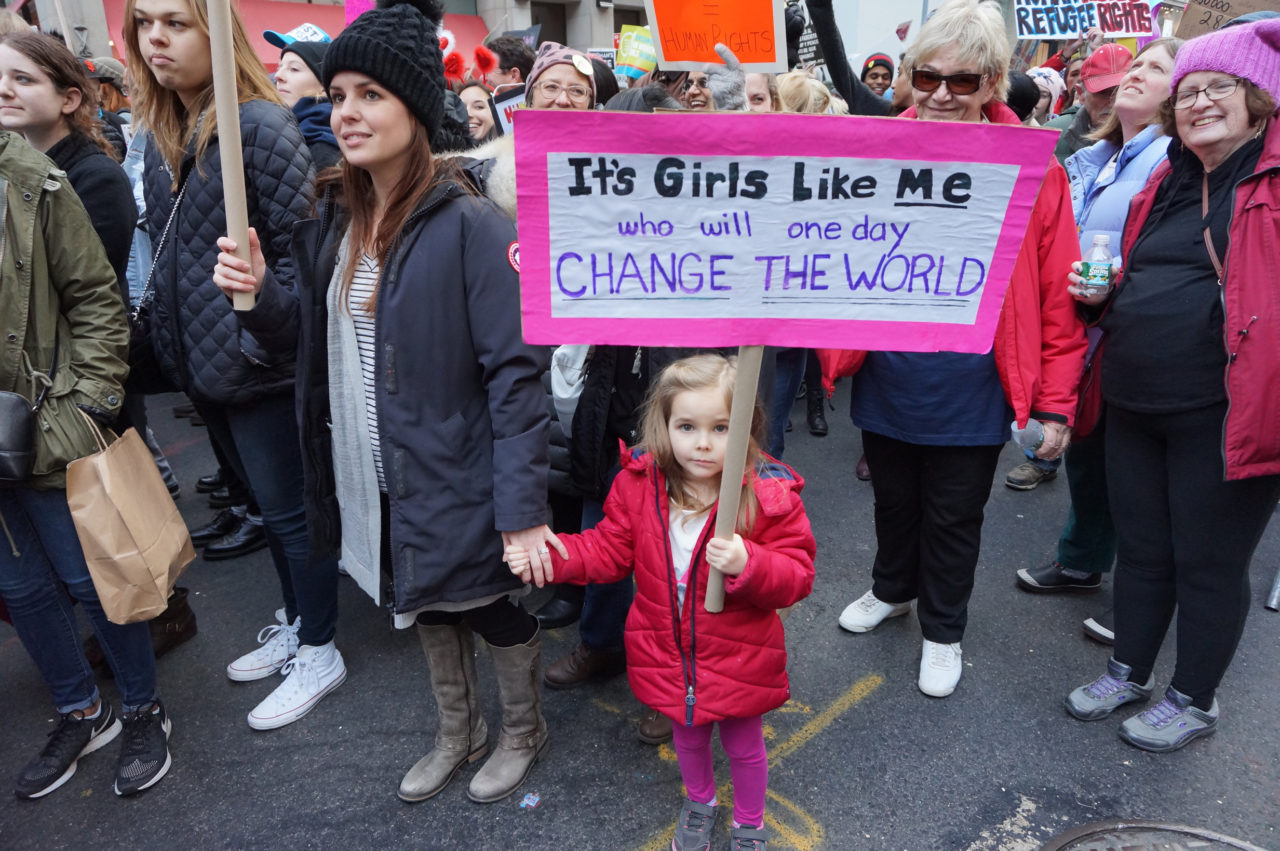
For more information about The Sisterhood of Tea, visit thesisterhoodoftea.com and facebook.com/groups/thesisterhoodoftea. Uppercase Tea products are available online and at a variety of Sonoma spots, including Cottage Inn & Spa, Les Pascals, Frenchie, Sweet Scoops, Fat Pilgrim and The Panel.


